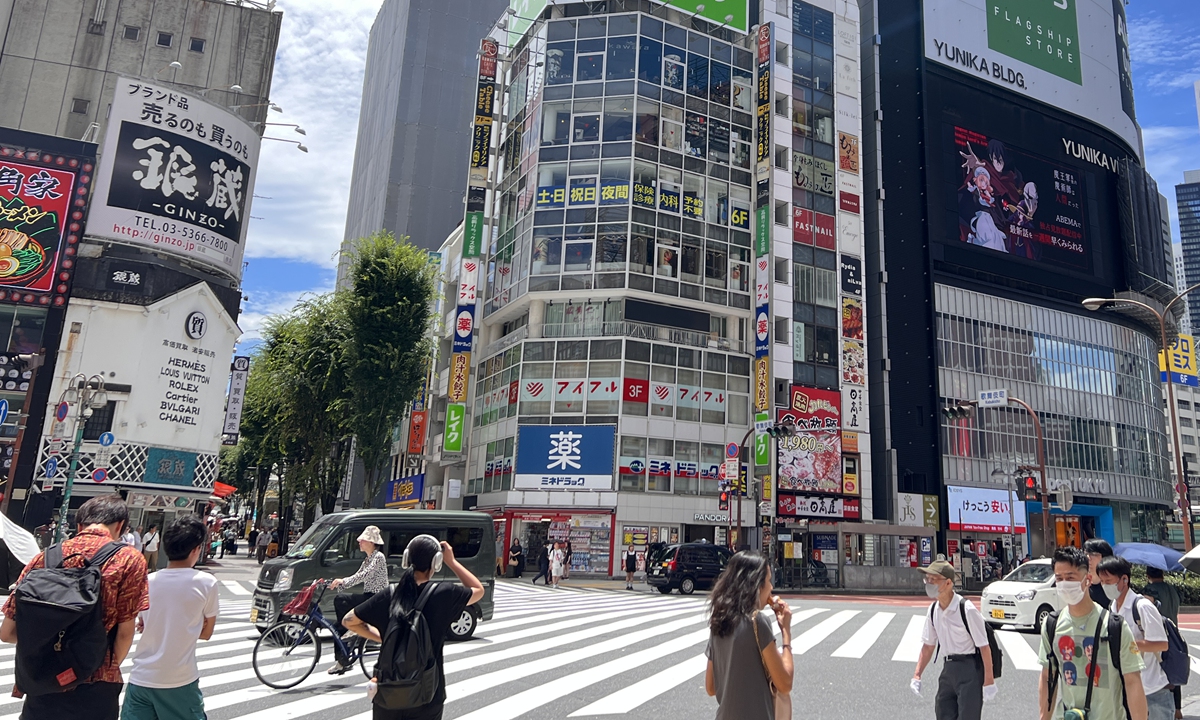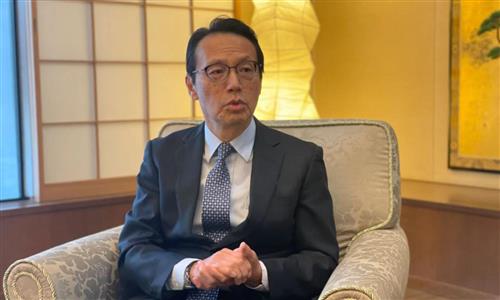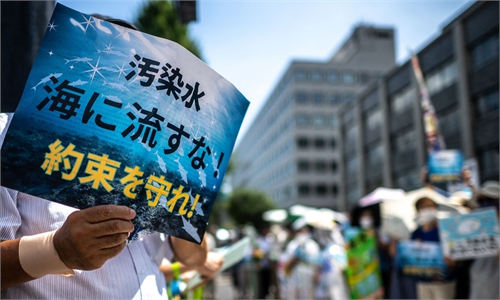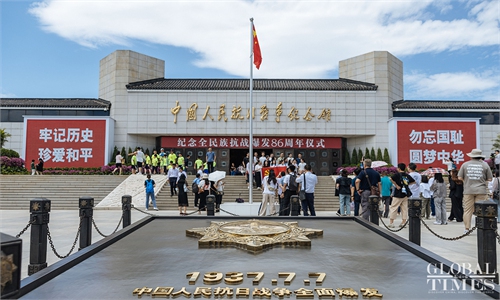IN-DEPTH / IN-DEPTH
Chinese customers get rid of blind trust in Japanese products, become more rational and objective

Picture taken on July 19, 2024, shows a drugstore on a street in Shinjuku, Tokyo, Japan. Photo: Leng Shumei/GT
My recent experiences in Japan also reflect the change in Chinese consumers' attitudes toward Japan-made products.
During a travel to Tokyo last week, I suffered a serious menstrual pain that prompted me to buy some painkillers in local drugstores, a very common thing for Chinese tourists in Japan to do. I had heard of the effectiveness of made-in-Japan medicines and health care products. So, I thought it might be a good chance for me to experience their magic by myself.
However, when I searched "menstrual pain, made-in-Japan painkillers" on Xiaohongshu, a Chinese lifestyle-sharing platform also known as Little Red Book, for some recommendations, I surprisingly found out that, instead of recommending specific brands and products, many of the posts on the platform warned against some popular Japanese painkillers as they contain controversial ingredients that may bring about side effects, reminding users to pay attention to the ingredients when purchasing painkillers, or other over-the-counter drugs in Japanese drugstores.
According to some posts and media reports, for example, a popular Japanese painkiller, EVE, contains Apronal, a hypnotic sedative that was withdrawn from clinical use in many countries including China. This ingredient is reported to have the potential to cause severe adverse reactions such as thrombocytopenic purpura.
At various drugstores, there was not as many Chinese clients as expected to flock to purchase cosmetics and pharmaceuticals.
In addition to painkillers, I also hesitated to ask a friend whether she needed me to purchase baby formula from Japan for her newborn baby. Japan-produced dairy products have long been one of the bestsellers among Chinese customers due to their quality and flavor.
However, right now people are very concerned about the safety of these products after the country started to dump nuclear-contaminated wastewater from the Fukushima Daiichi Nuclear Power Plant into the sea, especially considering that China had banned Japanese food imports from Fukushima and nine other regions in July 2023.
Among the products allowed to enter China, such as vegetables, milk and dairy products, aquatic products and aquatic animals, tea, fruits, and medicinal plant products, certificates issued by the Japanese government are required to prove that these products have passed radiation testing during customs declaration, according to the China Customs.
Since the May Day holidays this year, reports have frequently noted that Japan has turned into a shopping paradise for international tourists as the Japanese yen keeping hitting historic lows. Among the tourists, wealthy Chinese shoppers have also been reportedly splashing out on luxury items in Japan.
During my visit last week, I also visited some famous shopping resorts in Ginza, Shibuya, Shinjuku as well as the tax-free shops at the Narita Airport in Tokyo. As far as I could see, there were indeed many Chinese tourists, but few were lining up outside luxury shops and high-end Japanese cosmetic brand stores such as SK-II. More Chinese tourists are now visiting famous Japanese scenic spots like the Asakusa Kannon Temple and shopping at affordable brand stores like UNIQLO and Montbell.
These changes in trends help to underscore Chinese consumers' sense of getting rid of blind trust in "Made in Japan" products and a realization that "Made in Japan" no longer equals quality and effectiveness. More and more Chinese customers are now taking a rational and objective approach toward Japanese-made products based on details, compositions, usage experiences, and their actual demand.



